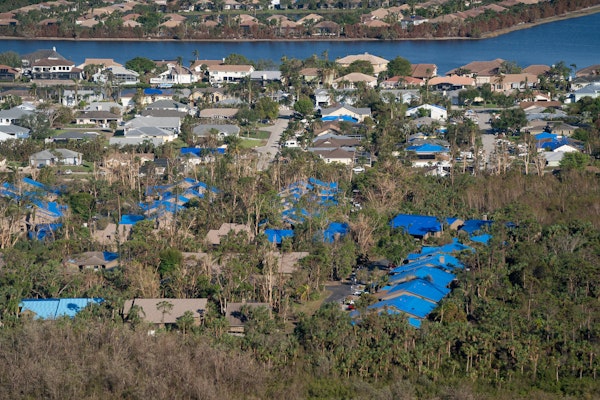
CEOs With Disaster Experience Linked to 24% Fewer Workplace Injuries
New research finds companies led by CEOs exposed to severe childhood disasters report 24% fewer worker injuries, highlighting the impact of leadership traits on safety outcomes.
February 19
Insurance Industry
Liability
Risk Management
Underwriting
Workers' Compensation

Why Paper Checks Still Dominate Insurance Claims Payments
Paper checks still dominate insurance payments, but fraud data, workflow drag, and customer expectations are pushing carriers toward digital alternatives.
February 19
Auto
Fraud
Insurance Industry
Property
Risk Management

Travelers Rolls Out Agentic AI Voice for Auto Claims Intake
New AI Claim Assistant handles auto damage claim calls, guides FNOL and shifts adjusters toward resolution-focused work.
February 19
Auto
Education & Training
Insurance Industry
Technology

78% of Insurers Plan Higher Tech Budgets in 2026, Survey Finds
Survey data shows carriers and brokers ramping up AI, cybersecurity and digital platforms as claims, fraud and catastrophe pressures intensify.
February 19
Catastrophe
Fraud
Insurance Industry
Litigation
Risk Management

NFIP Debt and Low Uptake Leave Texas Flood Losses Largely Uninsured
Texas Hill Country floods reveal low insurance uptake, mounting NFIP debt, and growing pressure on FEMA’s Risk Rating 2.0 reforms.
February 19
Catastrophe
Insurance Industry
Legislation & Regulation
Property
Risk Management
Texas

Federal Judge Dismisses ‘Boneless Wings’ Consumer Fraud Lawsuit Against Buffalo Wild Wings
An Illinois federal judge ruled that reasonable consumers are not misled by the term ‘boneless wings,’ tossing a proposed class action but allowing the plaintiff time to amend the complaint.
February 19
Insurance Industry
Liability
Litigation
Illinois

Zelle, Venmo and Cash App Fraud Losses Climb as Companies Reassess Controls
Losses tied to Venmo, Zelle and Cash App are climbing, pushing underwriters and claims teams to scrutinize controls, coverage limits and internal fraud exposure.
February 19
Fraud
Insurance Industry
Litigation
Risk Management
Technology

North American Insurers Face Structural Claims Cost Shift in 2026
Gallagher Bassett’s 2026 Carrier Perspective report finds social inflation, medical costs, catastrophe losses and AI-driven fraud are compounding severity and workforce pressure for carriers.
February 17
Auto
Catastrophe
Fraud
Insurance Industry
Litigation

Florida Property Reinsurance Rates Poised to Fall as Reinsurers Reassess Litigation Loads
Gallagher Re’s Adam Schwebach says mid-year renewals could bring added capacity, rate reductions, and renewed appetite for underwriting hurricane risk in Florida.
February 17
Catastrophe
Insurance Industry
Legislation & Regulation
Property
Risk Management
Florida

Bayer Plans $10.5B Settlement to Resolve Roundup Cancer Lawsuits
The proposed deal would address current and future glyphosate cancer claims, with Missouri state court proceedings at the center of the class-action effort.
February 17
Insurance Industry
Liability
Litigation
Risk Management
Missouri

Public Safety Power Shutoffs Expand Beyond California Amid Growing Wildfire Risk
Utilities across the West are increasingly cutting power during high-risk weather, reshaping wildfire prevention strategies and claims exposure for insurers.
February 9
Catastrophe
Insurance Industry
Legislation & Regulation
Liability
Property
California
Colorado
Nevada
New Mexico
Texas

Why Claims Automation Fails Without Process Redesign
Most carriers add AI to claims workflows that were already failing. Real results come from redesigning intake, audits, and prioritization before automation ever starts.
February 9
Education & Training
Insurance Industry
Legislation & Regulation
Risk Management
Technology

Legacy Data Architectures Keep Insurance AI Stuck in Pilot Mode
Legacy data systems built for reporting, not real-time decision-making, are preventing insurers from moving AI tools into daily underwriting and claims operations.
February 9
Insurance Industry
Property
Risk Management
Technology

Why Bloomberg Says Premium Caps Could Worsen the Homeowners Insurance Crisis
A Bloomberg editorial urges policymakers to focus on resilience, legal reform, and mitigation rather than capping rates or penalizing insurers as premiums climb nationwide.
February 6
Catastrophe
Insurance Industry
Legislation & Regulation
Litigation
Property
California
Florida
Illinois

Washington Landlord Sues State Farm Over Seven-Adjuster Water Damage Claim
A Spokane Valley landlord alleges repeated adjuster turnover and underpayment left a rental property uninhabitable for months and triggered lien filings and litigation.
February 6
Insurance Industry
Legislation & Regulation
Litigation
Property
Washington




